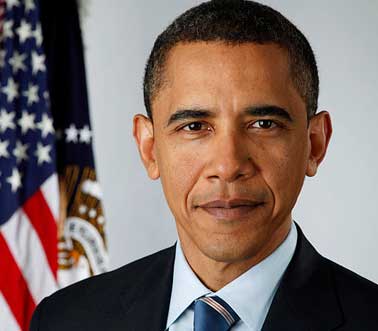Last week, it leaked that Israel’s Defense Minister, Moshe Ya’alon, had privately described Secretary of State John Kerry as “obsessive and messianic” in his quest to broker an Israeli/Palestinian peace settlement. The Obama Administration angrily rejected Ya’alon’s words as “offensive and inappropriate,” demanding and receiving an apology. Yet, only weeks earlier, Yasser Abed Rabbo, a close adviser to Fatah/Palestinian Authority (PA) president Mahmoud Abbas, also excoriated John Kerry as possessed of “dangerous” proposals and seeking to “appease Israel by fulfilling its expansionist demands in the Jordan Valley under the pretext of security. He wants to buy Israeli silence over the Iran deal.” But for these grave, personal PA allegations against Kerry, the Obama Administration has said nothing.
Why this startling discrepancy in the Administration’s response? Why has it ignored blatant anti-peace statements from the PA, such as the call by the PA Minister of Religious Affairs, Mahmoud Al-Habbash for Syrian jihadists to cease murdering each other and wage war against Israel? Or the PA’s Abbas Zaki reaffirming that the PA’s public demand for a state alongside Israel is merely a device aimed at eventually removing Israel from the map –– a policy supposedly repudiated over 20 years ago?
Because the Administration will not assimilate evidence that invalidates its public formula that the Palestinians are willing to conclude a genuine peace with Israel. So it ignores or finesses PA anti-peace words and deeds, while stridently criticizing Israel on disagreements and reluctance to make unilateral concessions.
Under Obama’s pressure, Israel’s Netanyahu government accepted in-principle a Palestinian state and unprecedentedly froze Jewish construction in the West Bank for 10 months in a bid to bring the PA to the negotiating table. The PA refused to come until the very end and broke off talks shortly after, but it was Israel whom Obama singled out in a January 2010 TIME interview for failing to make any “bold gestures” for peace.
When in March 2010, during a visit to the region by Vice-President Joseph Biden, the PA’s named a public square in Ramallah after Dalal Mughrabi, the leader of the 1978 coastal road bus hijacking, in which 37 Israelis, including 12 children, were slaughtered, the Obama Administration was silent for days. When Clinton belatedly criticized the Mughrabi event, it was only to whitewash the PA by falsely claiming “a Hamas-controlled municipality” had initiated it.
In contrast, a mere Israeli announcement of building program in a Jewish neighborhood in eastern Jerusalem that also occurred during the Biden visit led the Obama Administration to immediately condemn it and describe it as “destructive,” an “insult” and an “affront.”
No other state, let alone ally, attracts the same ire, even when policy divergence is massive. When in April 2010 Afghan President Hamid Karzai, in the words of journalist Joel Brinkley, made “delusional criticism of the United States and its allies” and threatened to “join the Taliban” –– this, in the midst of U.S. soldiers fighting and dying shoring up his regime –– the Administration found it merely “troubling” and “frustrating” and asserted that Karzai needed to be “treated with respect.”
When in June 2010, Turkey voted against a new US-supported U.N. Security Council sanctions bill on Iran, there was no talk of destructiveness, insults or affronts –– the U.S. was merely “disappointed.” And when in October 2011, the Abbas’ Fatah brazenly demanded U.S. taxpayer aid as “a political and moral right,” Obama took no notice, let alone curtail or withhold aid to the ingrate PA.
When Iran’s top leader Ayatollah Ali Khamenei, addressing a mass rally, called the U.S. a “Great Satan” and an “enemy who smiles,” and Iranian President Hassan Rouhani boasted that “the U.S. and world powers surrendered to the Iranian nation’s will,” Obama said nothing. Only when the Iranian Foreign Minister, Mohammad Zarif, laid a wreath at the tomb of a Hizballah terrorist leader, who in 1983 murdered 242 U.S. marines in Lebanon, did the Administration permit a low-level National Security Council official to condemn it is a short statement.
Israel is expected to do things neither the U.S. nor its other allies would do. This month, the Obama Administration was critical of Afghanistan’s Karzai releasing of scores of Islamist “dangerous criminals against whom there is strong evidence linking them to terror-related crimes.” But last year, the Administration pressured Israel into releasing scores of convicted Palestinian killers of Israeli civilians –– although it did express concern when one of those released, Al Haj Othman Amar Mustafa, turned out have also murdered an American. Actions unacceptable elsewhere were positively demanded of Israel.
The Obama pattern is clear. The respect for sovereign decisions and deference to security concerns that apply to other U.S. allies are absent when it comes to Israel. Israel is expected to bow to the Administration’s policy without demur, run security risks the U.S. itself would not abide, and ignore the extremism, non-acceptance and bad faith of its Palestinian interlocutor, just as the Obama Administration does. This is just the unseemly underside of the disconnect between the Administration’s public words of support for Israel and the reality of its coolness and indifference to the realities it faces.
Morton A. Klein is National President of the Zionist Organization of America (ZOA). Dr. Daniel Mandel is Director of the ZOA’ s Center for Middle East Policy.
